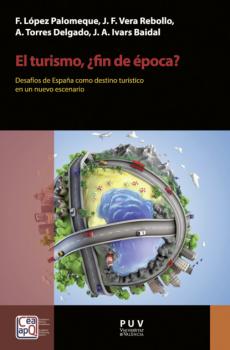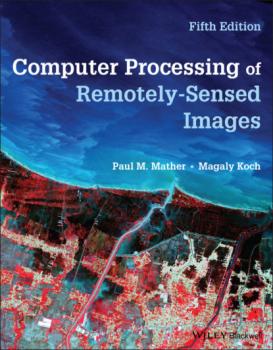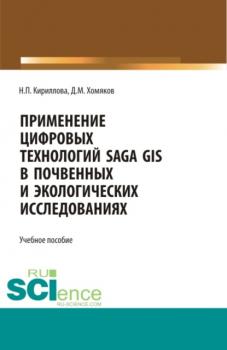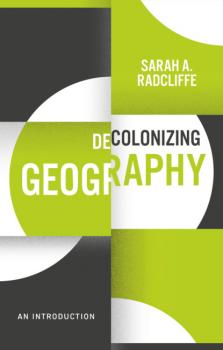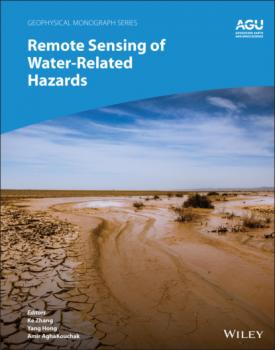География
Различные книги в жанре ГеографияEl turismo, ¿fin de época?
La pregunta sobre el fin de época del turismo que se plantea en el título no es una alusión a un cambio de ciclo o de fase, ni tampoco al fin del turismo, sino a la emergencia de un nuevo modelo, una transformación de alcance estructural, tanto de sus factores inductores como de sus manifestaciones multidimensionales en un mundo interrelacionado. Los indicios de esta transición empezaron a intensificarse a lo largo de la última década, antes de la aparición de la COVID-19, cuyos efectos se han sumado a otros factores.Ante la diversidad de los procesos específicos de transformación, el contenido de la obra se ha centrado en el análisis y la valoración de cuatro factores clave que, interrelacionados, son fundamentales para poder conocer y comprender el desarrollo del turismo en España y para reflexionar sobre el futuro deseado y el posible: la movilidad espacial de la población, la revolución tecnológica y la transformación digital, los límites del turismo y su desarrollo sostenible y, finalmente, la política, la planificación turística y la gobernanza. Una vez analizada su realidad, su dinámica y sus desafíos, se concluye con una valoración de los procesos de reactivación del sector y unas recomendaciones finales para la transición hacia la nueva época del turismo.
Применение цифровых технологий SAGA GIS в почвенных и экологических исследованиях. (Аспирантура, Бакалавриат, Магистратура). Учебное пособие.
Учебное пособие предназначено для студентов факультета почвоведения Московского государственного университета имени М.В.Ломоносова, обучающихся по направлениям «Почвоведение», «Экология и природопользование». В пособии приводятся алгоритмы построения цифровых почвенных карт, а также методы анализа изображений с использованием большого количества инструментов, входящих в программу SAGA GIS. В настоящее время SAGA (System for Automated Geoscientific Analyses) является одной из наиболее сильных ГИС аналитической направленности и активно используется в почвоведении, экологии и географии. Большая привлекательность этого программного обеспечения обусловлена его свободным доступом и открытым исходным кодом. Пособие восполняет острую необходимость справочных материалов на русском языке, которые пока отсутствуют в документации к данной программе. Помимо этого, в пособие включены разделы по совместному использованию SAGA GIS и базы данных Postgresql, не документированные в официальном руководстве на английском языке. Существенным достоинством пособия является раздел, посвященный автоматизации работы в программе с использованием командных строк, реализованный на конкретном примере анализа изображения почвенного профиля. Данное пособие может быть полезно научным работникам, специалистам в области охраны природы и экологического прогнозирования, студентам и аспирантам естественных и агрономических факультетов вузов, использующих методы ГИС-анализа и цифровые технологии программно-вычислительного комплекса SAGA (System for Automated Geoscientific Analyses) в работе с пространственно-распределенными данными.
Manifesting Democracy?
MANIFESTING DEMOCRACY? ‘This book is a must-read for those seeking to understand right-wing authoritarianism in contemporary Brazil. It connects Brazil's street protests of 2013 – a moment celebrated by progressives at the time – to the eventual rise of Jair Bolsonaro. The essays presented here highlight key insights from top scholars in the field, and offer context for understanding politics and the future of Brazilian democracy.’ —Dr Jeff Garmany, University of Melbourne Manifesting Democracy? explores the series of public protests – manifestações – that took place in a number of Brazilian cities in June and July 2013, when thousands of people took to the streets to demand improvements in urban infrastructures. This book critically examines the role these protests played in politics, the political and their relationships to urban space and culture. It also analyses their connections to the emergence of a ‘New Right’ in Brazil. Bringing together scholars from a number of different fields (geography, history, philosophy, art, political economy) and activists, this book is the first interdisciplinary English language anthology to address Brazil’s 2013 protests and the broader political and cultural questions they raise. As such, it is a major contribution to Brazilian and Latin American Studies in Europe and the USA, as well as interdisciplinary studies of social movements, urban culture and politics.
Decolonizing Geography
The first book of its kind, Decolonizing Geography offers an indispensable introductory guide to the origins, current state and implications of the decolonial project in geography. Sarah A. Radcliffe recounts the influence of colonialism on the discipline of geography and introduces key decolonial ideas, explaining why they matter and how they change geography’s understanding of people, environments and nature. She explores the international origins of decolonial ideas, through to current Indigenous thinking, coloniality-modernity, Black geographies and decolonial feminisms of colour. Throughout, she presents an original synthesis of wide-ranging literatures and offers a systematic decolonizing approach to space, place, nature, global-local relations, the Anthropocene and much more. Decolonizing Geography is an essential resource for students and instructors aiming to broaden their understanding of the nature, origins and purpose of a geographical education.
Remote Sensing of Water-Related Hazards
Remote Sensing of Water-Related Hazards Remote Sensing of Water-Related Hazards Water-related hazards such as floods and droughts have serious impacts on society. Their incidence has increased in recent decades, a trend set to continue with ongoing climate change. Adaptation and mitigation measures require accurate detection, monitoring, and forecasting, much of which comes from remote sensing technologies. Remote Sensing of Water-Related Hazards takes an interdisciplinary approach, presenting recent advances in the available data, sensors, models, and indicators developed for monitoring and prediction. Volume highlights include:[/b] Progress in remote sensing of precipitation, storms, and tornados Different techniques for flood mapping, forecasting, and early warning Integrated approach for predicting flood and landslide cascading hazards Satellite monitoring of water cycle variation, water scarcity, and drought conditions Multi-indicator and multi-sensor approaches for quantifying drought impacts The American Geophysical Union promotes discovery in Earth and space science for the benefit of humanity. Its publications disseminate scientific knowledge and provide resources for researchers, students, and professionals.
